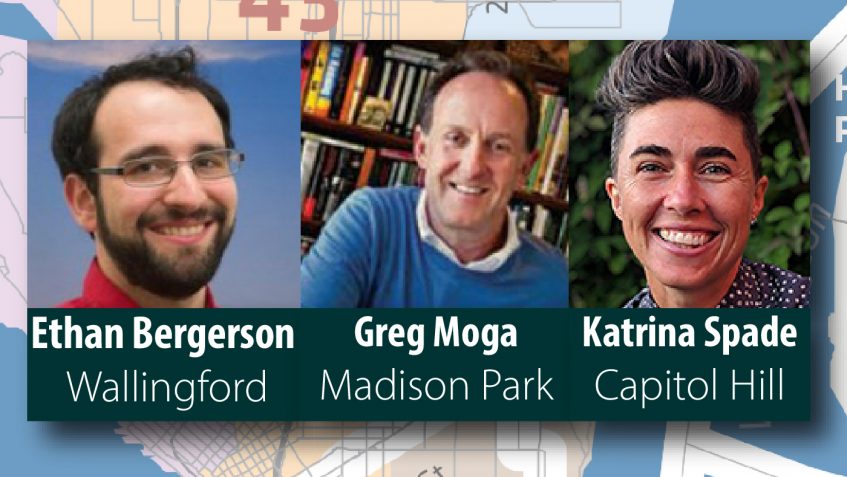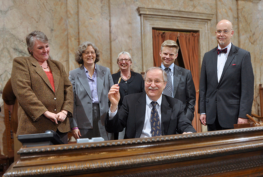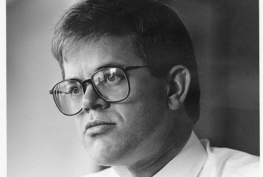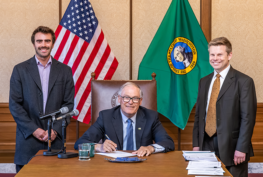Often the best ideas for new laws originate with friends and neighbors who are willing to tell their stories and put in hours of work to develop and advance legislation. One example close to my heart this week is the story of Ann Donovan, a Capitol Hill neighbor and mom. Already battling cancer, Ann met with me starting in 2015 and encouraged me to introduce the Right-to-Try bill, giving terminally ill patients the right to try medical products that have been through preliminary safety testing but have not been finally approved by the FDA. After a couple of years of work, we passed SB 5035 in the 2017 session. As a result, patients in Washington have better access to investigational medical products. Ann lost her battle with cancer on August 26, but her activism has produced a lasting legacy for our entire community.
In honor of Ann, I’d like to use my final e-newsletter in this series on the 2019 session to highlight three 43rd District constituents who alerted me to problems with Washington law last year and then helped me to get those problems fixed by passing bills in the 2019 session.
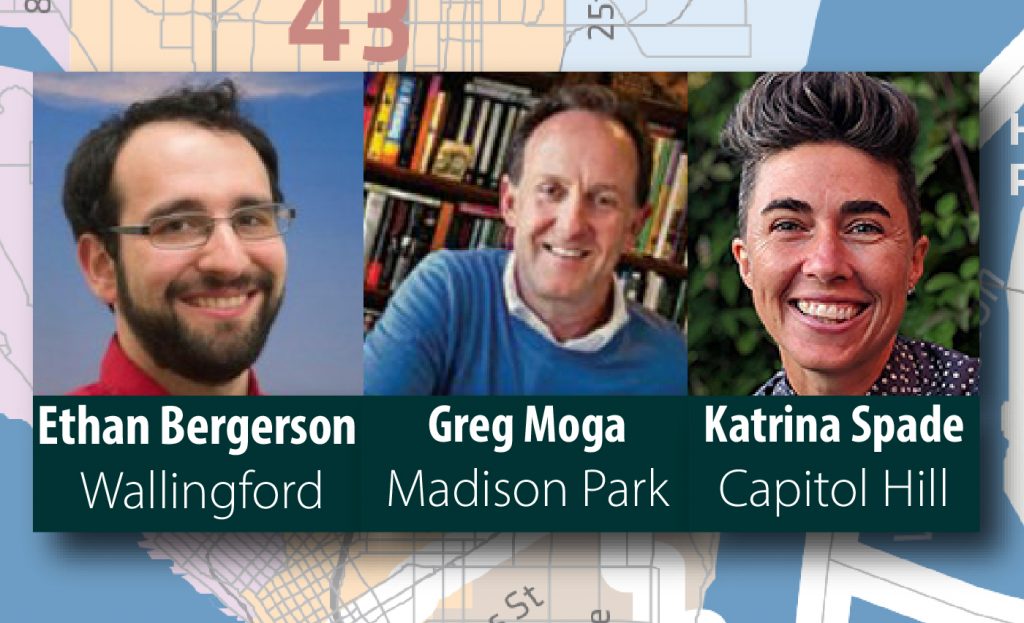
Katrina Spade (Capitol Hill)
SB 5001 will make Washington the first place in the world that allows natural organic reduction (accelerated, controlled composting) of human remains. It is safe to say that the bill would not have become law this year without the unwavering dedication of Katrina Spade. For more than a decade, Katrina has focused her energy on environmentally-sustainable alternatives to traditional end-of-life practices. She introduced me to her “Urban Death Project” in 2017 and then met me again in the spring of 2018 to ask if I could help remove the legal prohibition on natural organic reduction in our state. Katrina’s ability to build a coalition of support around a very emotional topic was crucial to passing this new law, which will go into effect in May 2020.
Ethan Bergerson (Wallingford)
Laws governing how to divide parenting time after a couple dissolves their relationship are complex and confusing and provoke emotional responses. Families across our state are better off today thanks to Ethan Bergerson, a constituent who shared his story of unintended consequences of the Child Relocation Act which specifies how judges should determine what is in the best interest of the child when one of their parents needs to move or change school districts. Recent court decisions had ruled that language in the statute referring to the parent “with whom the child resides a majority of the time” meant that parents who shared residential time equally could never be allowed to relocate (affecting about a quarter of the divorced parents in this state). In Ethan’s case, both parents had agreed that they wanted to be able to relocate but the court ruled that parents who shared time equally were not allowed to make this kind of agreement and that judges do not need to consider the child’s best interests in these cases. Ethan came to Olympia to testify in the Senate Law & Justice Committee and the House Civil Rights & Judiciary Committee. By sharing his story, he helped to pass SB 5399, which is already helping families around the state facing similar circumstances escape from legal limbo.
Greg Moga (Madison Park)
In 2011, Washington state pioneered the idea that children born through assisted reproductive technology should, once they become adults, have access to information about their genetic parents. This is similar to the rights we give adopted children to information about their birth parents. That innovation has since become a part of the Uniform Parentage Act, which is being considered and adopted by states across the country following Washington’s lead in 2018. Greg Moga and his team at Seattle Sperm Bank helped identify a problem with how the new Parentage Act dealt with the transmission of genetic information between clinics. Working together, we developed a solution – adopted in SB 5333 – that will protect the rights of children while ensuring the privacy of donor information.
Working with constituents to solve complex challenges remains among the most rewarding parts of serving you in the legislature. I reflect frequently on how fortunate I am to live in and represent such an engaged community. Please continue to reach out to me with ideas or issues: it’s how our state government works best.
